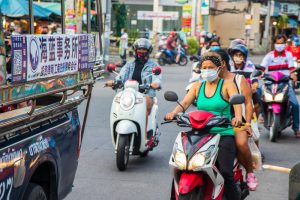Since the start of the pandemic, governments around the world have used emergency measures to suppress negative press coverage related to COVID-19. Southeast Asia is no exception. This alarming trend parallels recent findings from Reporters Without Borders, whose 2021 World Press Freedom Index found that press freedom has largely declined across the region. While Southeast Asia has long experienced challenges to media freedom, the censorship of journalism concerning COVID-19 represents a unique threat, as it undermines public confidence in government responses to the pandemic and limits the availability of information that citizens need to make informed decisions regarding their health and safety during this crisis.
Multiple governments in the region have leveraged misinformation laws to suppress coronavirus-related reporting and criticism. The Cambodian government on May 4 banned reporting from its COVID-19 “red zones,” where residents barred from leaving their homes were experiencing food shortages. In July 2020, Malaysian authorities deported a Bangladeshi man for criticizing the government’s treatment of migrant workers during the pandemic in an Al Jazeera documentary. In March 2021, Malaysia also passed a “fake news” ordinance which made publishing false information related to COVID-19 punishable by up to three years in prison. Unsurprisingly, Malaysia fell 18 spots to 119th place in the annual World Press Freedom Index, the largest drop of any Southeast Asian country.
In neighboring Singapore, the government has also used misinformation laws to crack down on negative press related to the pandemic. The Protection from Online Falsehoods and Manipulation Act (POFMA) passed in 2019 allows government ministers to order any online information they deem false or misleading taken down. Health Minister Gan Kim Yong utilized POFMA in February 2020 to issue a correction order to the owner of a Facebook page that claimed the government was unable to trace the source of COVID-19 cases in the country. In May of this year, Facebook and Twitter were also ordered to post a warning on their platforms after an Indian government official claimed that there was a dangerous COVID-19 variant that had originated in Singapore. The city-state fell two spots to 160th place on the World Press Freedom Index, the second-lowest ranking in Southeast Asia above Vietnam.
Southeast Asian governments have justified their actions by pointing to the threat posed by COVID-19-related misinformation, arguing that curbing fake news is necessary to maintain public order. Some concerns about misinformation are no doubt well founded. However, recent events indicate the pliability of anti-fake news efforts, as well as the extent to which they can be appropriated to achieve political, rather than public health, aims.
Additionally, the continued targeting of journalists and others who report critically on the state of affairs related to COVID-19 carries significant implications for public trust. It could also limit the ability of Southeast Asians to make informed decisions regarding their own health and safety amid the pandemic. Beyond signifying a major crisis in press freedom, the repression of coverage on COVID-19 could exacerbate vaccine hesitancy, a lack of public cooperation with contact tracing efforts, and noncompliance with public health measures.
Thailand appears to be a case in point. In March 2021, Thai police charged former Future Forward Party leader Thanathorn Juangroongruangkit with lese majeste for criticizing the government’s overreliance on Siam Bioscience, a company owned by the king, to manufacture and supply AstraZeneca vaccines for both Thailand and the wider region despite the company having no prior experience producing vaccines. These charges against Thanathorn seem intended to stifle broader criticism of Thai-produced vaccines which Thai authorities have begun delivering domestically and are set to begin exporting in July.
Thai citizens have accused the government of shortsightedness for not procuring enough vaccines from other sources amid a third wave of infections. Although Thailand aims to vaccinate 70 percent of its population by the end of 2021, less than 2 percent of the population has been fully vaccinated, casting doubt over the tourism-reliant economy’s recovery. Vaccine hesitancy has increased rapidly in the lead up to the government’s nationwide vaccine rollout, with willingness to receive vaccinations decreasing from 83 percent to 63 percent between January and May. This represents the highest rate of hesitancy among Southeast Asian countries. Public distrust of the Thai government has exacerbated this vaccine hesitancy, especially with regards to government-procured vaccines from China.
Thailand’s botched vaccination drive further demonstrates how restrictions on freedom of the press, especially around COVID-19-related reporting, can limit citizens’ access to accurate information and decrease public trust. On June 2, Thailand’s Minister of Digital Economy and Society ordered internet service providers to close eight Facebook accounts accused of posting fake news on social media, all of which are run by pro-democracy activists or political commentators. As of June 11, these pages are still accessible in Thailand. The Thai government’s efforts to clamp down on pandemic-related fake news in this instance appear to be a thinly-veiled attempt to cover up the government’s vaccination shortcomings by silencing political dissidents.
Reaching herd immunity and eradicating the coronavirus must be a group effort. Given serious deficiencies in the pandemic-related data collected and disseminated by governments, Southeast Asian citizens have turned to the media and civil society as critical sources for information. Openness and the freedom of the press will go a long way in building trust and could prove to be essential as a means of ensuring compliance with public health responses and minimizing vaccine hesitancy. However, if attacks on press freedom continue, the trust deficit in the region will widen and citizens will be left in the dark about the scope and nature of the crisis, hamstringing efforts toward pandemic recovery.
This article was originally published on New Perspectives on Asia from the Center for Strategic and International Studies and is reprinted with permission.

































